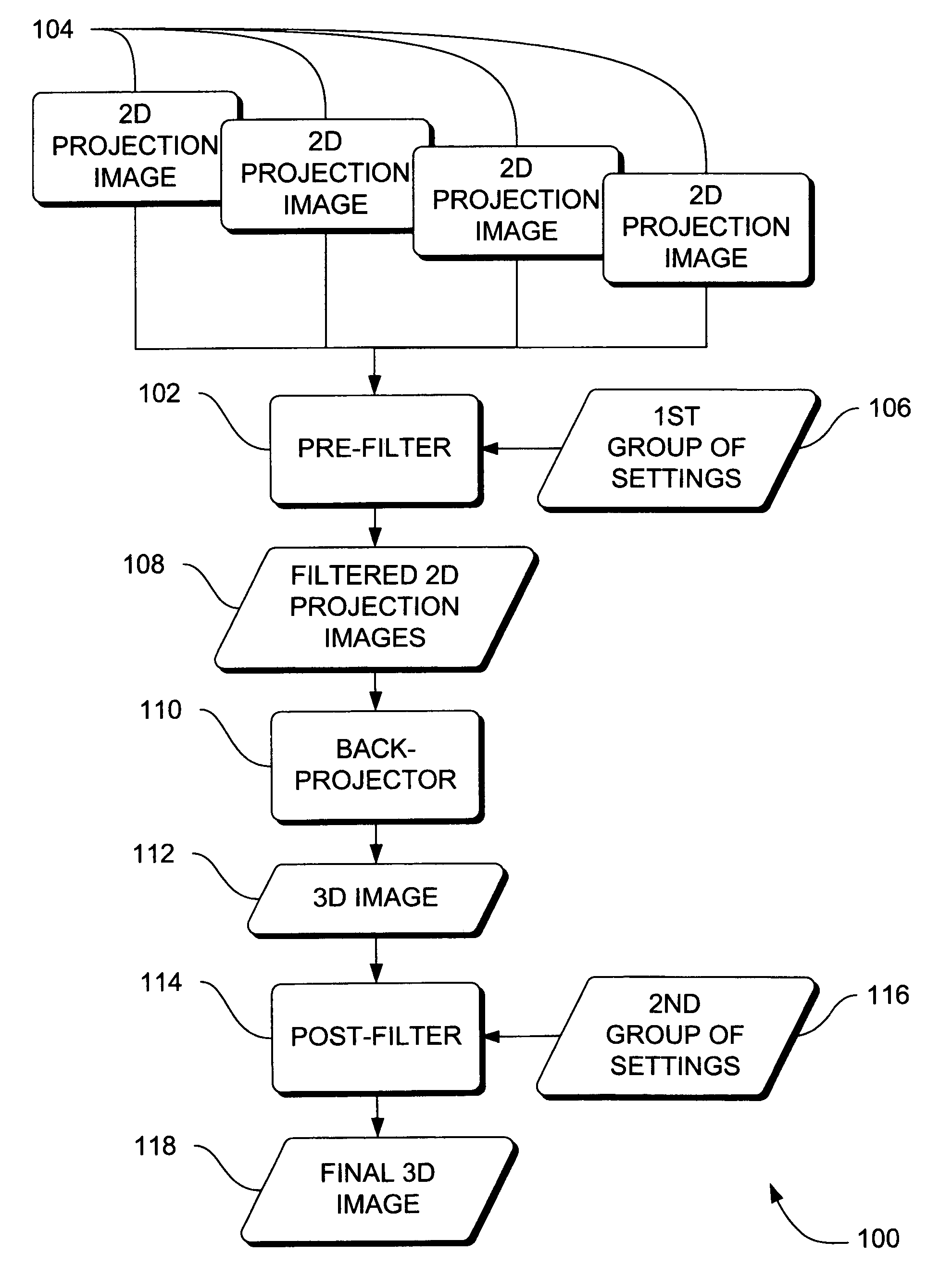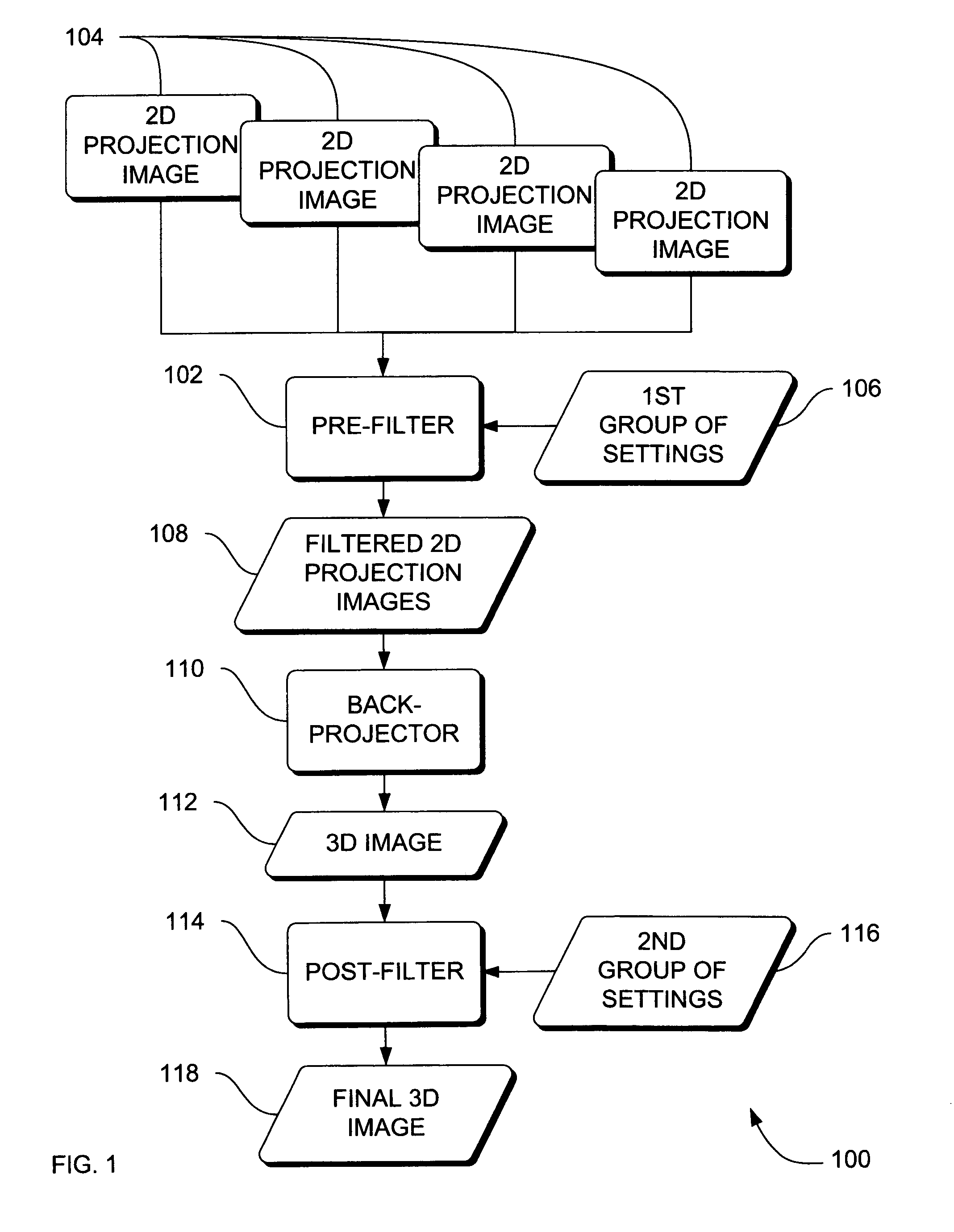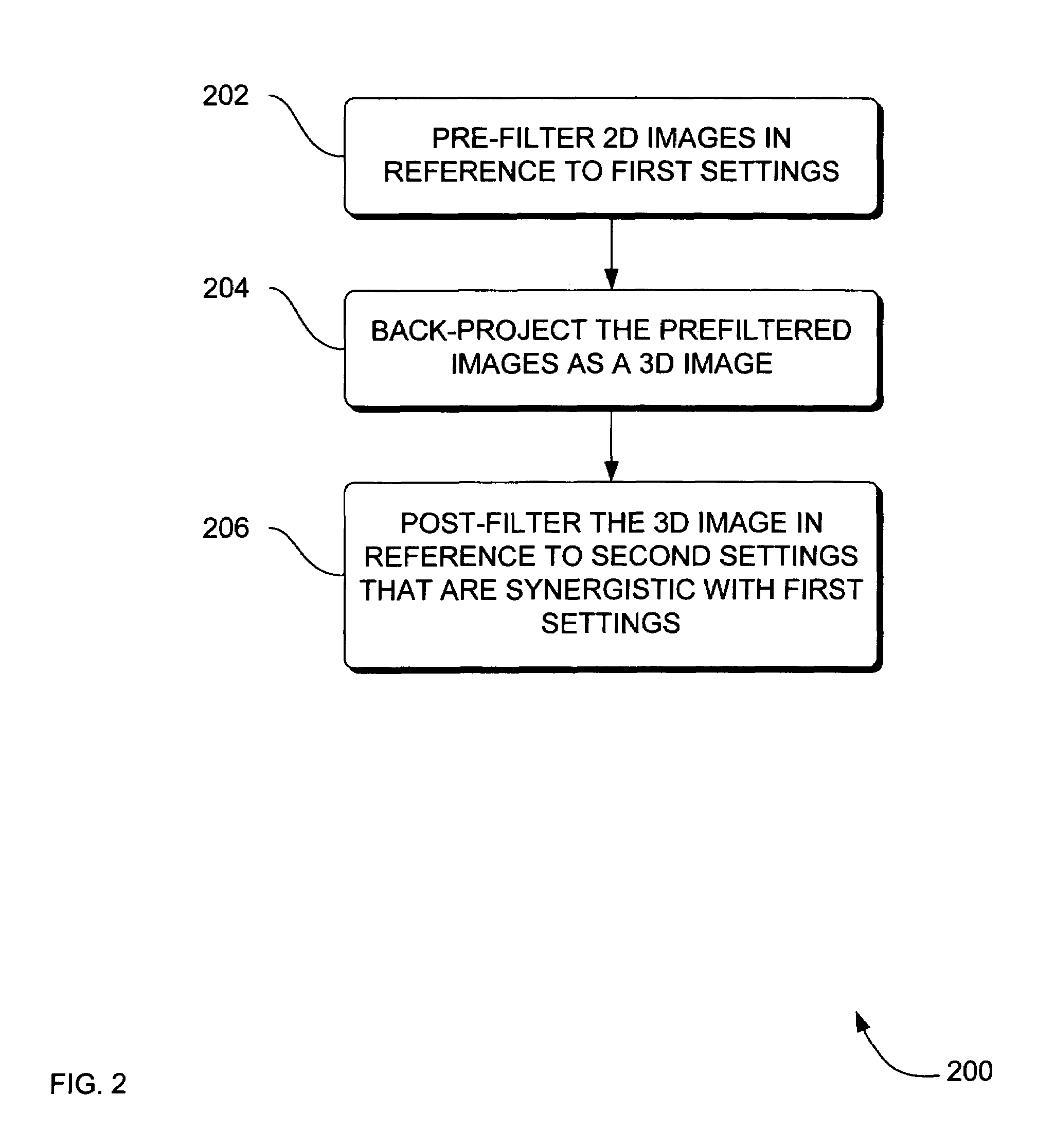Systems, methods and apparatus for filtered back-projection reconstruction in digital tomosynthesis
a back-projection reconstruction and digital tomosynthesis technology, applied in the field of systems, methods and apparatus for filtered back-projection reconstruction in digital tomosynthesis, can solve the problems of depth dependent blurring of these structures, conventional filtered back-projection methods, and streaking artifacts
- Summary
- Abstract
- Description
- Claims
- Application Information
AI Technical Summary
Problems solved by technology
Method used
Image
Examples
an embodiment
Methods of an Embodiment
[0038]In the previous section, a system level overview of the operation of an embodiment is described. In this section, the particular methods of such an embodiment are described by reference to a series of flowcharts. Describing the methods by reference to a flowchart enables one skilled in the art to develop such programs, firmware, or hardware, including such instructions to carry out the methods on suitable computers, executing the instructions from computer-readable media. Similarly, the methods performed by the server computer programs, firmware, or hardware are also composed of computer-executable instructions. Methods 200-700 are performed by a program executing on, or performed by firmware or hardware that is a part of, a computer, such as computer 802 in FIG. 8.
[0039]FIG. 2 is a flowchart of a method 200 to construct a three-dimensional (3-D ) image of an object from a plurality of two-dimensional (2-D) projection images of the object according to a...
PUM
 Login to View More
Login to View More Abstract
Description
Claims
Application Information
 Login to View More
Login to View More - R&D
- Intellectual Property
- Life Sciences
- Materials
- Tech Scout
- Unparalleled Data Quality
- Higher Quality Content
- 60% Fewer Hallucinations
Browse by: Latest US Patents, China's latest patents, Technical Efficacy Thesaurus, Application Domain, Technology Topic, Popular Technical Reports.
© 2025 PatSnap. All rights reserved.Legal|Privacy policy|Modern Slavery Act Transparency Statement|Sitemap|About US| Contact US: help@patsnap.com



